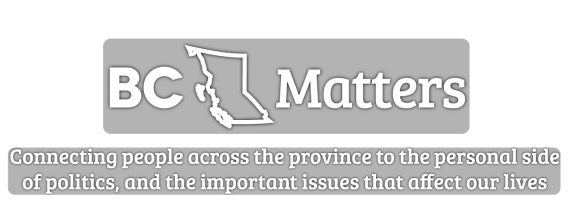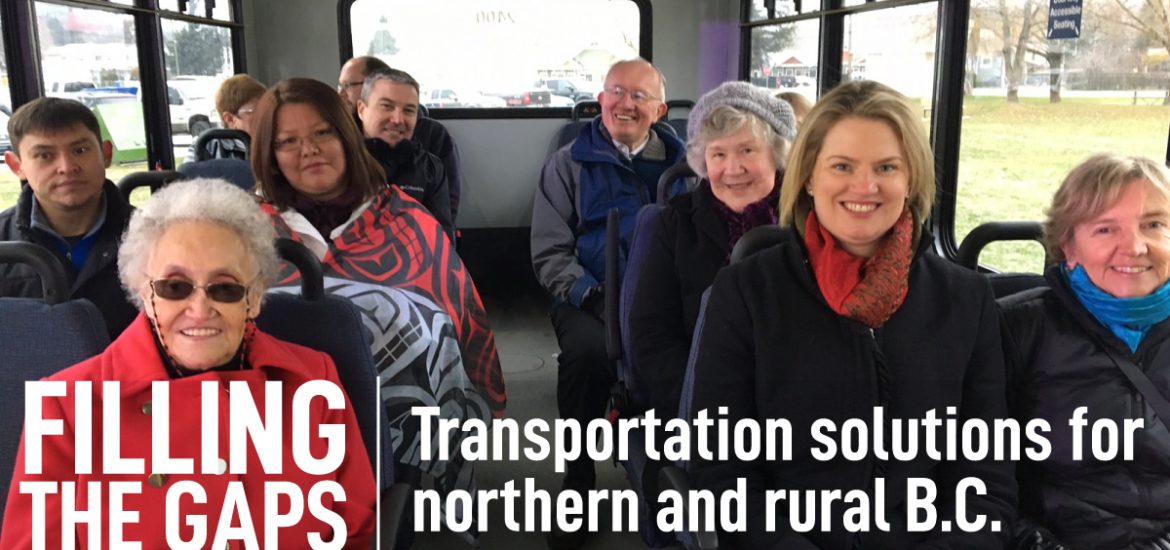
When I was first elected in 2013, one of the first letters I received was from three Indigenous women who had tragically lost female family members on the Highway of Tears (Highway 16). Their message to me was simple: “Don’t forget about our loved ones.”
Since the Highway of Tears Symposium in 2006, families and community leaders have been calling for an intercommunity shuttle bus service to help women, girls, seniors, and community members travel safely along the Highway 16 corridor. Almost a decade had passed, and the BC Liberals had failed to take any action on this.
In 2012, Missing Women Commissioner Wally Oppal called for immediate action to provide public transportation options along the Highway of Tears in his report Forsaken: The Report of the Missing Women Commission of Inquiry. Once again, the BC Liberal government failed to act.
It was the letter from the three Indigenous women that compelled me to take action.
In the legislature, my colleagues and I asked numerous times the simple question of when residents along Highway 16 would receive accessible bus service. When our questions were ignored, we submitted Freedom of Information requests on all materials related to the Highway of Tears, and even took a road trip along Highway 16 to speak to local residents and impacted communities.
The delays in receiving responses to our Freedom of Information requests went from days, to weeks, to months. Instead of providing answers to communities in the Northwest, BC Liberal cabinet ministers dismissed our questions and the former Minister of Transportation’s assistant even went so far as to triple delete all emails on the subject.
Here I am – current @bcndp MLA near the start of Highway 16 on the mainland of the #NorthCoast. I understand that @Wilkinson4BC may not have much information about Highway 16, considering @toddstonebc’s former assistant deleted all the emails about it. #BCPoli pic.twitter.com/BpTplR4dOq
— Jennifer Rice (@JenniferRice6) April 26, 2018
The people of the North are resourceful, but when it comes to travelling the vast distances from community to community, there are few options for those without a vehicle.
Yet, for over a decade, the BC Liberals refused to develop safe transportation options along this infamous highway.
It was their inaction which forced more vulnerable women in the Northwest to hitchhike along the Highway of Tears. Far too many women hitchhiking this route never made it to their final destination, many of them from local Indigenous communities.
The former BC Liberal government had to be shamed into providing what mayors, chiefs and community members had asked for back in 2006 – bus service. And in the year-and-a-half, since the shuttle bus service launched, 12,000 passengers have had a safe alternative to hitchhiking.
People in rural areas rely on buses to run errands, visit family, and attend medical appointments, which is why when Greyhound announced they were pulling bus service from B.C., there was a very real fear of losing a critical transportation network. That’s why our government launched BC Bus North, a new long-haul bus service which covers the majority of northern routes that Greyhound eliminated.
But BC Bus North is not all our government is doing to improve transportation in northern and rural BC. We’re implementing all five components of the Highway 16 Transportation Action Plan which was developed in close consultation with First Nations and local governments. This includes expanded BC Transit service connecting communities like Beaverley and Telkwa, the community vehicle program, First Nations driver education, more webcams, increased cell service, and more collaboration between local government, First Nations and transportation service providers.
I’m particularly proud of our government’s recent work with Rogers Telecom to bring cell service to Witset (formerly Morricetown,) ensuring that for the first time all First Nation communities along Highway 16 have access to a reliable tower.
We know services like BC Bus North haven’t been able to serve all Northern communities, which is why we’ve worked with services like Northern Health Connections to extend eligibility parameters to allow for more people to use their service. Folks over 60 and anyone with mobility challenges can now travel on the Northern Health Connections bus without first needing a doctor’s note.
To replace Greyhound on other abandoned routes in B.C., we worked with private companies and now over 80% of former routes have bus service, including service from Prince George to Hope, Nelson to Kelowna, and Vancouver to the BC/Alberta border. We’re working with other private sector applicants to cover the remaining routes.
People in the Northern and rural areas of our province need access to safe, affordable, and reliable long-distance transportation to get them from town to town and across the region, but under the BC Liberals, this was never a priority.
Our government has made addressing the transportation needs of rural communities a priority, and because of our actions First Nation communities, seniors, and women across our region have access to safe, affordable, and reliable transportation options.
To all the women and community members I’ve met who have given me the fuel for years to question the previous government on this critical issue, thank you.
And in particular, thank you to the three women who wrote to me in 2013. There is, of course, more work to do, but as our New Democrat government continues to develop the transportation services our communities rely on, your story will remain at the top of my mind.

